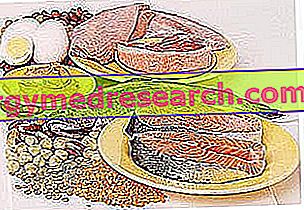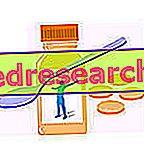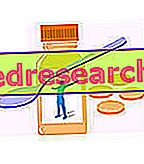In the typical diet of Western countries in general, and of Italy in particular, the most common food sources of vitamin B12 are foods of animal origin, such as meat, milk, eggs, fish and fishery products. Conversely, in the countries of East Asia and South-East Asia, an important source of vitamin B12 is represented by algae, a characteristic ingredient of local cuisines.

Given the above, it is not enough to rely on the vitamin B12 values reported in the nutritional tables; rather, it is necessary - at least in broad terms - to know which foods have poor vitamin bioavailability.
Since the intestinal absorption of vitamin B12 is strictly dependent on the availability of intrinsic factor (produced by the stomach), and since in physiological conditions this system is saturated for doses of vitamin B12 equal to about 1.5–2.0 μg per meal, higher quantities of vitamin B12 significantly decrease the bioavailability of excess vitamin level.
According to a more recent study [2], the bioavailability of vitamin B12 in healthy adult subjects is on average around:
42% for fish meat
56% –89% for sheep meat
61-66% for chicken meat
56% –89% for cooked mutton
The vitamin B12 contained in the eggs seems to be poorly absorbable (<9%) if compared to that present in other animal sources.
Significant losses of vitamin B12 (~ 33%) were recorded after the meat was cooked.
In the same study it is reiterated once again that:
most blue-green algae (cyanobacteria such as spirulina algae or Klamath seaweed) used in food supplements contain pesudovitamin B12, which is inactive in humans. Therefore, these supplements are not suitable for supplementing vitamin B12 of food origin, since they contain it mainly in a poorly bio-available form.
Several studies have shown, for example, that vitamin B12 contained in spirulina algae and Klamath algae is not bioavailable in mammals [4, 5, 8]. A more recent study reinforces the bioavailability of vitamin B12 contained in the Klamath algae [9]
On the other hand, it seems that other types of algae, such as nori, can prevent the deficiency of this vitamin in the vegan population [3]. Hypothesis confirmed by the isolation of the only active forms of vitamin B12 in dry extracts of eukaryotic microalgae ( Chlorella sp. And Pleurochrysis carterae ) [6, 7]. Vitamin B12 contained in Porphyra umbilicalis algae has proved to be bioavailable for laboratory mice.
Sources of vitamin B12 and relative bioavailability
| Food | Bioavailability * | Vitamin B12 content (μg / 100 g) | |
| ANIMAL MEATS | |||
| Mutton Cotto | 56% -89% | 2.6 | |
| Cooked Chicken | 61% -66% | 9.4 | |
| COW MILK | 65% (25) | 0.4 | |
| EGGS | |||
| Chicken eggs, cooked | <9% | 1.3 | |
| FISHERY PRODUCTS | |||
| Oysters | ND | 46.3, 28.1 | |
| Mussels | ND | 15.7, 10.3 | |
| Clams | ND | 37.0, 52.4 | |
| MEAT OF FISH | |||
| Striped tuna, dark muscle | ND | 158.5 | |
| Yellow fin tuna, dark muscle | ND | 52.9 | |
| Rainbow trout, cooked | 42.0% | 4.9 | |
| EDIBLE ALGAE | |||
| Porphyra umbilicalis (Purple laver) | ND | 32.3, 77.6 | |
| Alga nori (Green laver) | ND | 63.6, 31.8 | |
| Chlorella | ND | 200.9-211.6 | |
| Klamath Alga | ND | 100 | |
| * Less than 2 μg of vitamin B12 per meal in human subjects | |||
Bibliography:
[1] Dagnelie PC, van Staveren WA, van den Berg H. Vitamin B-12 from algae appears not to be bioavailable. Am J Clin Nutr. 1991 Mar; 53 (3): 695-7. Erratum in: Am J Clin Nutr 1991 Apr; 53 (4): 988.
[2] Watanabe F. Vitamin B12 sources and bioavailability. Exp Biol Med (Maywood). 2007 Nov; 232 (10): 1266-74. Review.
[3] Suzuki H. Serum vitamin B12 levels in young vegans who eat brown rice. Nutr Sci Vitaminol (Tokyo). 1995 Dec; 41 (6): 587-94.
[4] Watanabe F, Katsura H, Takenaka S, Fujita T, Abe K, Tamura Y, Nakatsuka T, Nakano Y. Pseudovitamin B12 is the predominant cobamide of an algal health food, spirulina tablets. J Agric Food Chem 47: 4736–4741, 1999.
[5] Herbert V, Drivas G. Spirulina and vitamin B12. JAMA 248: 3096–3097, 1982.
[6] Watanabe F, Takenaka S, Katsura H, Miyamoto E, Abe K, Tamura Y, Nakatsuka T, Nakano Y. Characterization of a vitamin B12 compound in the edible purple laver, Porphyra yezoensis . Biosci Biotechnol Biochem
[7] Miyamoto E, Watanabe F, Ebara S, Takenaka S, Takenaka H, Yamaguchi Y, Tanaka N, Inui H, Nakano Y. Characterization of a vitamin B12 compound from unicellular coccolithophorid alga ( Pleurochrysis carterae ). J Agric Food Chem 49: 3486–3489, 200
[8] Miyamoto E, Tanioka Y, Nakao T, Barla F, Inui H, Fujita T, Watanabe F, Nakano Y. Purification and characterization of a corrinoid-compound in an edible cyanobacterium Aphanizomenon flosaquae as a nutritional supplementary food.
[9] Effect of a Klamath algae product ("AFA-B12") on blood levels of vitamin B12 and homocysteine on vegan subjects: a pilot study. Baroni L, Scoglio S, Benedetti S, Bonetto C, Pagliarani S, Benedetti Y, Rocchi M, Canestrari F. Int J Vitam Nutr Res. 2009 Mar; 79 (2): 117-23.



